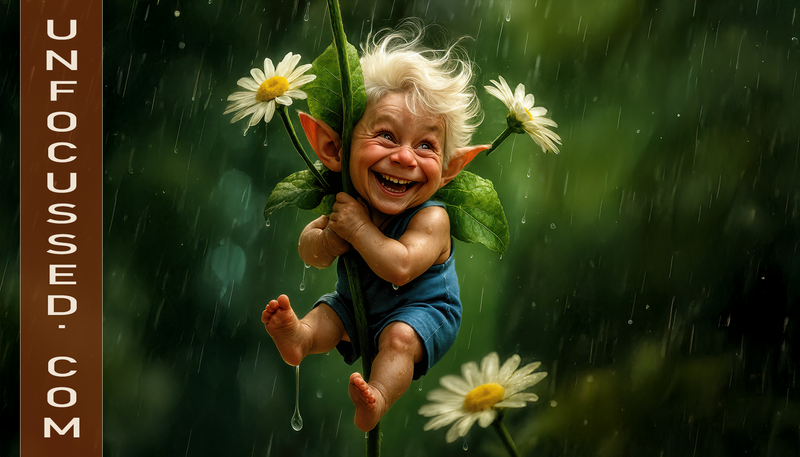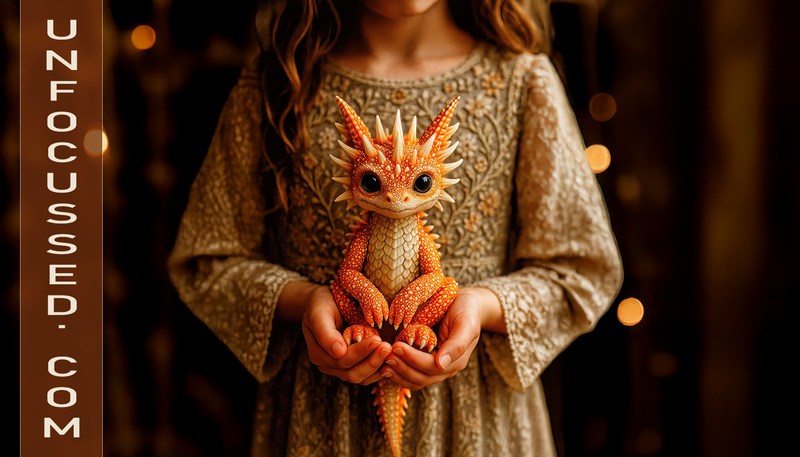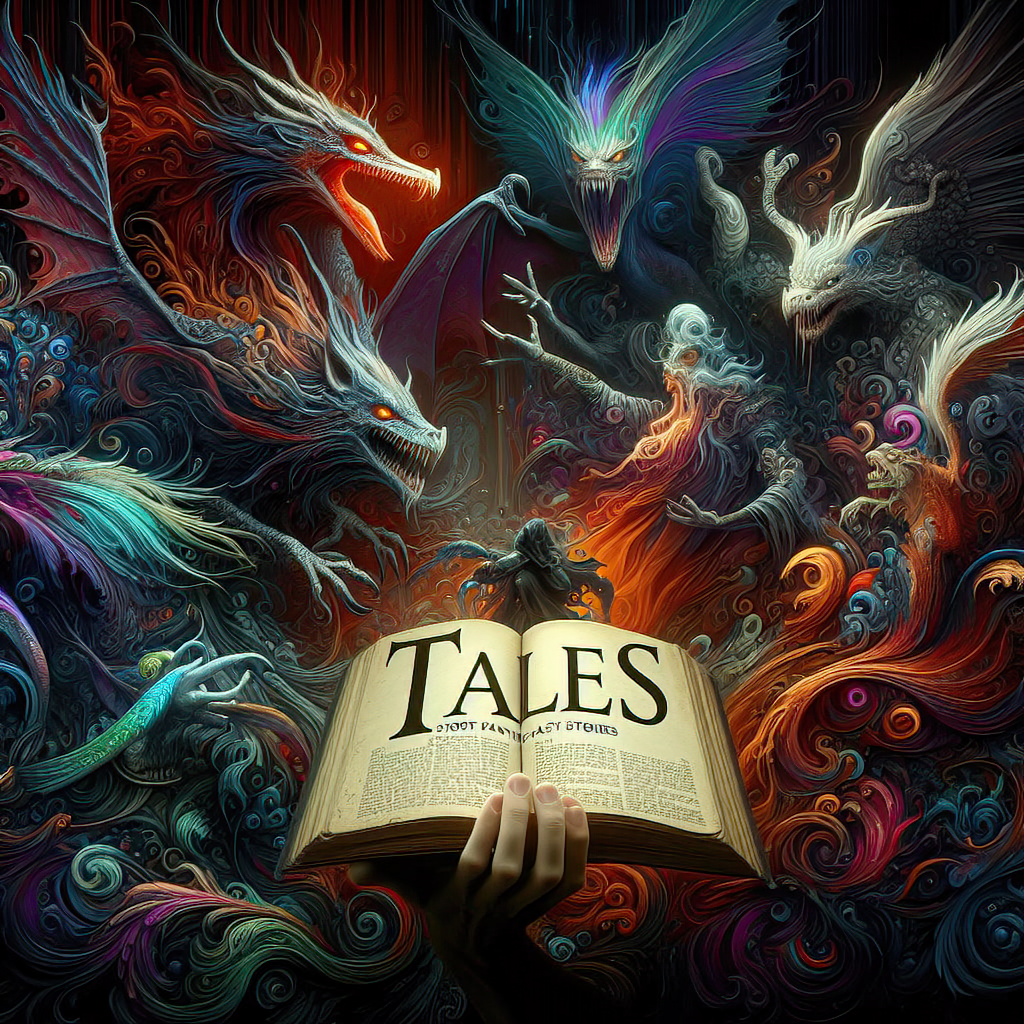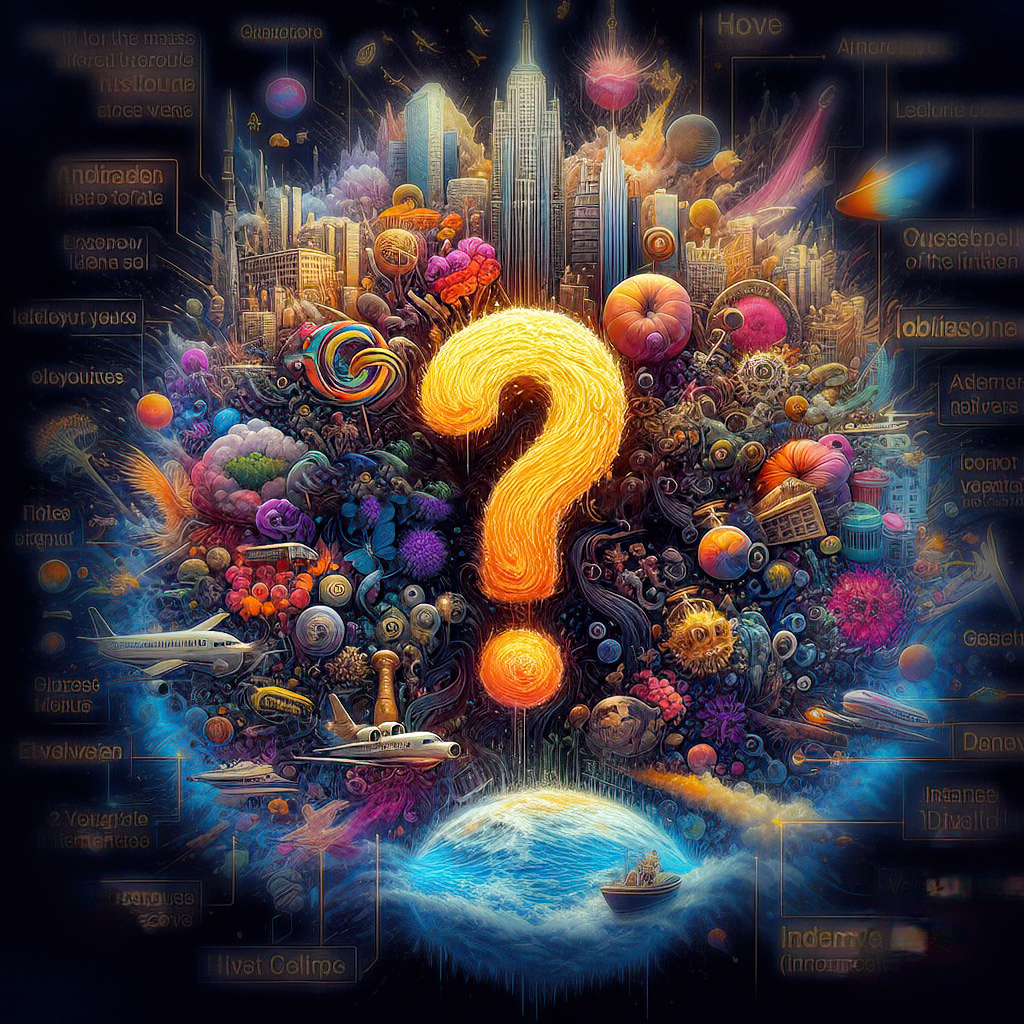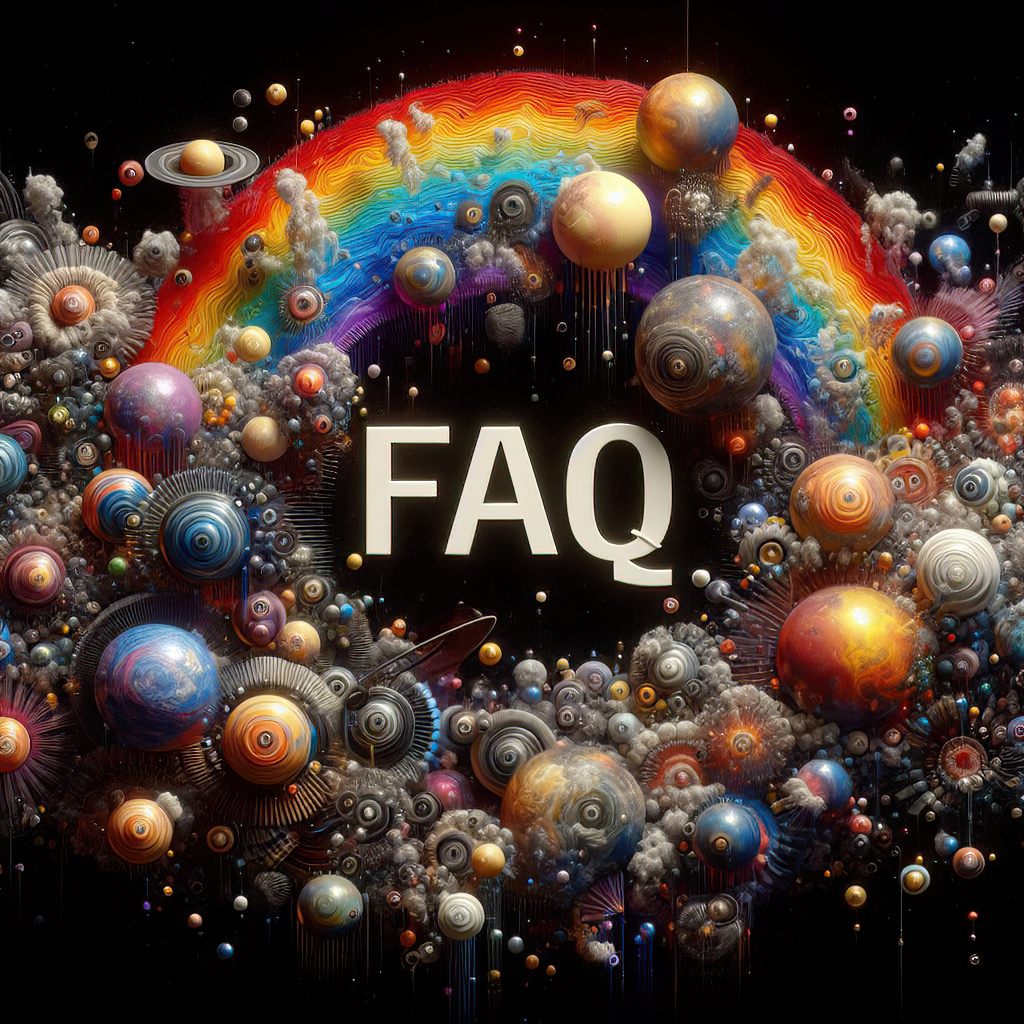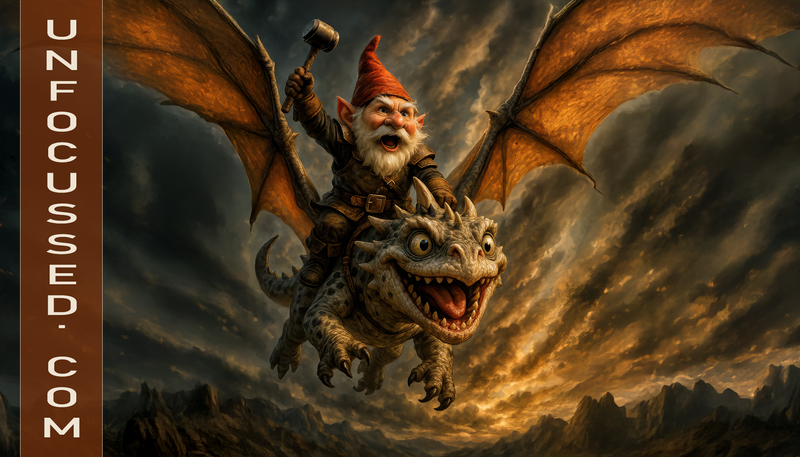
por Bill Tiepelman
Hammer of the High Skies
There are rules for gnomes. You don’t speak loudly in public unless you’re selling onions. You don’t drink before noon unless it’s mead (in which case it doesn’t count). And above all else, you don’t—under any circumstances—go around taming dragons. Dragons are for elves with cheekbones sharp enough to slice bread, or for dwarves who can drink molten iron and still belch politely afterward. Gnomes? Gnomes are supposed to tend gardens, paint doorframes cheerful colors, and keep their heads down when giants argue about who owns which mountain. Roderick Bramblehelm had never kept his head down in his life. At forty-three, he had the beard of a prophet, the patience of a mosquito, and the temper of a blacksmith whose anvil had just insulted his mother. He also had a hammer—a proper hammer, not one of those dainty mallets you use to hang shelves. This was forged steel with a handle of oak charred in dragonfire, the kind of hammer that made grown men step out of the way and priests start revising their wills. Roderick didn’t build with it. He didn’t fix with it. He raised it high as a promise to the world: if destiny won’t come knocking, I’ll bash the bloody door down myself. That philosophy is what led him into the Blacktooth Caverns on a storm-sick evening when most gnomes were at home, quietly admiring cabbages. The cavern was rumored to house something ancient and terrible. Villagers swore that every third Tuesday the mountains shuddered from within, as though the stones themselves had indigestion. Chickens went missing. Smoke rose where no fire had been lit. No one dared go inside—no one except Roderick, who had grown tired of hearing the elders whisper, “That one’s trouble,” whenever he entered the tavern. Trouble? He’d show them trouble. He’d show them wings slicing through thunder, jaws dripping with lightning, the kind of spectacle that made people drop tankards and soil breeches simultaneously. He found the beast curled among bones and broken wagons, snoring with the guttural rumble of earthquakes making love. The dragon was smaller than the legends promised, though “smaller” in this case meant only slightly less enormous than a cathedral. Its scales shimmered like wet stone, its horns were twisted corkscrews of ivory, and its teeth gleamed with the confidence of someone who had eaten several knights and found them bland. But the strangest thing of all was its grin—wide, feral, and utterly inappropriate for a creature that could end civilizations. The dragon’s name was Pickles. Roderick didn’t ask why; he suspected the answer would make his brain sprout mushrooms. “Oi, you scaly thunderchicken!” Roderick shouted, raising his hammer until it scraped the cavern roof. “Wake up, your nap’s over. The sky won’t conquer itself.” Pickles opened one saucer-sized eye, blinked once, and then let out a laugh so unholy that several bats dropped dead on the spot. It wasn’t a growl. It wasn’t a roar. It was the sound of madness having a tea party with chaos, and it rattled Roderick’s bones in the most satisfying way. “Finally,” the dragon croaked, its voice thick as burning tar. “A gnome with ambition. Do you know how long I’ve waited for one of you garden-tinkerers to grow a spine?” From that moment, their fates welded together like iron in a forge. Roderick climbed onto the beast’s back as if mounting a stubborn mule, and Pickles—after a ceremonial belch that scorched several stalactites—unfurled wings vast enough to slap the storm outside into submission. Together, they launched into the sky, shredding the night with fire and fury. The villagers of Cinderwhip, still sipping their weak ale and gossiping about the mayor’s suspicious mole, nearly dropped dead when they saw it: a gnome, of all things, astride a dragon the size of their bakery, laughing like a lunatic while waving a hammer that seemed far too big for his tiny arms. Their screams were immediate. Mothers dragged children indoors. Farmers dropped pitchforks. A priest fainted into his own soup. Yet there was no denying the magnificence of the spectacle. Pickles twisted through thunderheads, his wings scattering lightning like spilled jewels, while Roderick howled insults at the very clouds. “Is that all you’ve got?” he shouted into the storm, voice echoing across valleys. “I’ve seen scarier drizzle from a drunk donkey!” He slammed his hammer against his belt for emphasis, each clang like a war drum beating out the end of the old order. No one watching that night would forget it, no matter how hard they prayed. By dawn, the legend of Roderick Bramblehelm and Pickles the Dragon had been born. And legends, as everyone knows, are dangerous things. They don’t just change how others see you. They change what you are, and what you will have to face next. For the skies are never given freely—they are only won, and always at a price. The first night of flight was not graceful. Roderick Bramblehelm clung to Pickles’ scaly back like a barnacle strapped to a cannonball, his hammer raised high mostly because letting go meant falling to a very poetic death. The dragon’s wings pummeled the air with a sound like thunder being beaten into submission, and every dive threatened to eject the gnome into the clouds. But Roderick wasn’t afraid—not exactly. Fear, he’d decided long ago, was just excitement with poor posture. Besides, the view was intoxicating: lightning dancing through clouds, mountains carved in silver by the moon, and entire villages below, blissfully unaware that their future nightmares now came with a beard and a war hammer. Pickles was enjoying himself far too much. “Left, right, barrel roll!” he cackled, throwing his weight into aerial acrobatics that made falcons puke midflight. Roderick’s stomach lurched somewhere behind him, probably in a field. Yet he grinned, teeth bared against the wind, shouting back, “Is this all you’ve got, you overgrown newt? My aunt’s washing line gave me a rougher ride than this!” The insult delighted Pickles. He let out a wheezing, guttural laugh that sent sparks fizzing from his nostrils and set a cloud partially aflame. The cloud did not appreciate this and drifted off sulking, its edges smoldering like a badly rolled cigar. Their aerial chaos could not go unnoticed. By the second dawn, the news of a gnome atop a dragon spread faster than gossip about who’d been caught snogging behind the millhouse. Bards exaggerated, priests panicked, and kings muttered to their advisors, “Surely this is a joke, yes? A gnome? On a dragon?” Entire councils debated whether to laugh, declare war, or drink heavily until the memory passed. But memory does not pass when a dragon and rider scorch their names across the sky. And scorch they did. Their first target, entirely by accident, was a bandit camp nestled in the crook of the River Grell. Roderick had spotted their fire and, assuming it was a tavern, demanded a closer look. Pickles, never one to resist mischief, dove like a plummeting anvil. What followed was less a battle and more an extremely one-sided barbecue. Tents went up like parchment. Bandits screamed, scattering like cockroaches under divine judgment, while Roderick bellowed, “That’ll teach you to overcharge for ale!” He swung his hammer, obliterating a crate of stolen coins, sending silver raining into the dirt like divine confetti. The survivors later swore they had been attacked by the god of drunk lunatics and his pet apocalypse. From there, things escalated. Villages trembled when shadows darkened their skies. Noblemen soiled velvet trousers when Pickles swooped overhead, his grin a banner of impending chaos. Roderick found the whole affair intoxicating. He began inventing speeches to accompany their raids—grand, booming declarations that nobody could actually hear over the roaring wind but which made him feel dramatically important. “Citizens below!” he would shout into the gale, hammer aloft, “Your boring days are at an end! Behold your liberation in flame and glory!” To which Pickles would usually reply with a fart that set passing crows ablaze. Truly, they were poetry incarnate. But legends do not grow without enemies. Soon, the High Council of Stormwright Keep convened in their granite fortress. These were not sentimental people—they were the kind who measured morality in taxes and peace in tidy borders. A gnome with a dragon, unpredictable and ungovernable, was the sort of thing that sent their bowels into parliamentary panic. “This cannot stand,” decreed Archlord Velthram, a man whose face had all the warmth of a salted cod. “Summon the Knights of the Skyward Order. If a gnome believes he can own the clouds, then we shall remind him they are already under lease.” His advisors nodded gravely, though one or two scribbled furiously about whether they should trademark the phrase ‘lease of the skies’ for propaganda posters. Meanwhile, Roderick was utterly unaware that his name had become both battle cry and curse. He was too busy learning the mechanics of dragon flight. “Lean with me, you winged lunatic!” he barked during a sharp dive. “If I’m going to conquer the skies, I’ll not do it looking like a sack of potatoes flopping on your back.” Pickles snorted, amused, and adjusted his trajectory. Slowly, painfully, something resembling teamwork began to emerge from the chaos. Within a fortnight, they could slice through valleys like arrows, loop around storm spires with balletic grace, and terrify migrating geese for sport. Roderick even managed to stay in his saddle without swearing every third word. Progress. Their bond deepened not just through combat but through conversation. Around campfires of stolen logs, Roderick would drink bitter ale while Pickles roasted wild boars whole. “You know,” Roderick mused one night, “they’ll all come for us eventually. Kings, priests, heroes. They can’t stand the thought of a gnome rewriting their stories.” Pickles licked pork grease from his fangs and grinned. “Good. Let them come. I’ve been bored for centuries. Nothing tastes better than righteous indignation served on a silver spear.” And so the legend of Hammer and Dragon grew teeth. Songs carried their deeds across taverns. Children carved crude figures of a gnome with a hammer, standing triumphant atop a smiling beast. Merchants began selling counterfeit ‘dragon-scale charms’ and ‘authentic Bramblehelm beards’ at markets. For every cheer, though, there came a curse. Armies began to march. War horns blew across the realm. In storm clouds above, the first shadows of rival riders began to stir, knights with spears tipped in lightning, sworn to drag Roderick Bramblehelm screaming from the skies. But Roderick only laughed. He welcomed the challenge, hammer flashing in firelight. “Let them come,” he told Pickles, his eyes burning brighter than any dawn. “The skies were never meant for cowards. They were meant for us.” The first war horns sounded at dawn. Not the kind of dawn filled with rosy optimism and cheerful roosters, but the kind of dawn where the sun itself looked nervous about showing up. Across the valleys, banners unfurled—banners of lords, mercenaries, zealots, and anyone who thought killing a gnome on a dragon might look good on a résumé. The skies filled with armored gryphons, hawks so massive they could carry a cow in one talon, and the dreaded Knights of the Skyward Order: riders clad in polished steel, their spears tipped with bottled lightning. Their formation cut across the heavens like a razor. This was not a raid. This was an extermination. Pickles hovered at the edge of a storm, wings half-furled, grinning like a lunatic as always. His laughter boomed, rolling over the land like artillery. “Finally!” he crowed, sparks bursting from his teeth. “A proper audience!” His tail lashed through clouds, thunder growling like a hungry wolf. On his back, Roderick Bramblehelm tightened the straps of his saddle, the hammer across his shoulders heavy with promise. His beard whipped in the wind, his eyes gleamed with manic determination, and his grin matched his dragon’s. “That’s quite the reception,” he muttered. “I almost feel important.” “Almost?” Pickles snorted, then belched out a plume of fire so wide it startled a flock of starlings into immediate retirement. “You’re the most dangerous joke they’ve ever faced, hammer-boy. And jokes, when sharp enough, cut deeper than swords.” The enemy approached in waves. Trumpets shrieked. War drums thundered. Priests hurled curses into the gale, summoning holy fire and divine chains. But Roderick rose in his saddle, raised his hammer high, and bellowed a single word into the storm: “COME!” It wasn’t a plea. It was a command, and even the clouds flinched. The battle exploded like chaos uncaged. Gryphon riders dove, their beasts screaming, claws flashing in the stormlight. Pickles rolled, twisted, snapped one from the sky in his jaws, and spat the armored corpse into a village well three miles below. Roderick swung his hammer with glee, caving helmets, shattering shields, and occasionally smacking an unfortunate gryphon in the backside so hard it changed religions midflight. “Is that all?” he roared, laughter tearing from his throat. “My grandmother wrestled angrier chickens!” The Knights of the Skyward Order were no ordinary soldiers. They flew in flawless formations, their lightning-spears humming with captured storms. One spear struck Pickles square across the chest, sending sparks arcing over his scales. The dragon snarled, more annoyed than hurt, and let out a roar that cracked stone bridges below. Roderick nearly lost his grip, but instead of fear, his heart flooded with exhilaration. This was it—the storm he was born for. “Pickles!” he yelled, hammer aloft, “Let’s show these tin-plated pigeons how a gnome rewrites the sky!” What followed was not a battle. It was an opera of annihilation. Pickles spun through clouds, wings slicing wind into deadly vortices. His laugh—half shriek, half thunder—rolled over the field like doom itself. Roderick moved with lunatic precision, his hammer striking like punctuation in a poem written in blood and fire. He shattered the spear of one knight, dragged the rider from his saddle, and hurled him screaming into a thunderhead. Another knight lunged, only to find himself clotheslined by a gnome’s steel hammer in midair, which by all accounts should have been physically impossible. But legends care little for physics. Below, villagers stared upward, their lives frozen mid-task. Some prayed, some wept, some cheered. Children laughed at the absurdity of it—a tiny gnome slaying sky-knights while a dragon with a grin wider than the horizon shrieked in joy. Farmers swore they saw the gnome raise his hammer and strike lightning itself, splitting it into fragments that rained like molten silver. Entire churches would later form around the event, declaring Roderick Bramblehelm a prophet of chaos. Not that he’d ever attend a service. He thought sermons were dull unless someone caught fire halfway through. But legends always demand a price. The Archlord himself entered the fray atop a beast bred from nightmares—an obsidian wyvern, armored in spiked steel, eyes like black suns. Velthram was no fool. He carried no ordinary spear but the Spear of Dawnsbane, forged in storms older than empires, designed for a single purpose: killing dragons. His arrival hushed the battle for a breathless instant. Even Pickles’ grin faltered. “Ah,” the dragon hissed. “Finally, someone worth burping on.” The clash was cataclysmic. The wyvern slammed into Pickles midflight, talons tearing scales, tail smashing like a spiked whip. Roderick nearly flew from the saddle, clinging by one strap as the world spun into fire and shrieking metal. Velthram thrust the Dawnsbane, the spear’s lightning kissing Pickles’ ribs, carving a searing wound. The dragon roared in pain, fire exploding from his lungs, engulfing three unfortunate knights who had wandered too close. Roderick, dangling by one arm, swung his hammer with all the fury in his tiny body, smashing against Velthram’s armored face. The Archlord snarled, blood spraying, but did not fall. The battle raged across miles of sky. Villages below quaked as dragon and wyvern crashed through storm fronts, their roars louder than earthquakes. Roderick screamed insults with each swing—“Your wyvern smells like boiled cabbage!”—while Velthram countered with the cold silence of a man who hadn’t laughed since birth. Sparks rained, wings clashed, the very clouds tore apart beneath their fury. Finally, in a moment carved from madness, Roderick stood on Pickles’ neck, hammer raised, as the wyvern lunged in for the kill. Time slowed. The world held its breath. With a howl that shook heaven itself, Roderick leapt. He soared through the air—gnome beard streaming, hammer ablaze with stormlight—and brought it down upon Velthram’s spear. The impact cracked the Dawnsbane in two, thunder exploding outward in a wave that sent gryphons spiraling, shattered church bells across the realm, and split the storm into shreds of brilliant fire. Velthram, stunned, toppled from his saddle, his wyvern shrieking in panic as it dove to catch him. The sky was theirs. Pickles bellowed triumph, a laugh so wild it made the storm itself shudder into retreat. Roderick landed hard on his dragon’s back, barely clinging, lungs burning, body battered, but alive. Alive, and victorious. His hammer, cracked but unbroken, pulsed in his hands like a heartbeat. “That,” he rasped, spitting blood into the wind, “is how a gnome writes history.” The armies broke. The knights fled. The Council’s banners burned. Songs would be sung for centuries about the day a gnome and his dragon claimed the heavens. Some would call it madness. Others would call it legend. But for those who saw it with their own eyes, it was something greater: proof that the skies belonged not to kings, nor gods, nor armies, but to those mad enough to seize them. And so Roderick Bramblehelm and Pickles the Dragon carved their names into eternity, not as tyrants or saviors, but as chaos given wings. The hammer had fallen, the skies had been conquered, and the world—forever after—looked up in both terror and awe, waiting for the next roar of laughter to roll across the clouds. Bring the Legend Home The tale of Roderick Bramblehelm and Pickles the Dragon doesn’t have to stay in the clouds. You can capture their chaos, triumph, and laughter in your own space. Hang their storm-scorched glory on your wall with a framed print or let the legend breathe boldly across a canvas that commands the room. Carry their madness wherever you go with a spiral notebook for your own daring plans, or slap their fearless grin onto your favorite surface with a battle-ready sticker. The skies may belong to legends, but the art can belong to you.





















